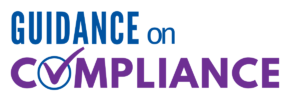Are you struggling with achieving MDS accuracy? In order to get it right and keep it right, you must first understand the MDS, how to complete it accurately, how accuracy affects reimbursement, and the impact it can have on your facility’s Quality Measures.
Understanding The Minimum Data Set (MDS)
The Minimum Data Set is the cornerstone for Medicaid reimbursement methodology. It is used to classify residents into Resource Utilization Groups (RUGs) that in turn generates a case mix score. The MDS contains extensive information on the resident’s nursing needs, Activities of Daily Living (ADL) impairment, cognitive status, behavioral problems, restorative needs, therapeutic needs and medical diagnosis.
The Resident Assessment Instrument (RAI) process, which the MDS is part of, helps nursing home staff gather definitive information on a resident’s strengths and needs, which must be addressed in an individualized care plan. It helps staff look at residents holistically, as individuals for whom quality of life and quality of care are mutually significant and necessary. Interdisciplinary use of the RAI promotes this emphasis on quality of care and quality of life.
The RAI process has multiple regulatory requirements. Federal regulations at 42 CFR 483.20(b)(1)(xviii), (g), and (h) require that:
- the assessment accurately reflects the resident’s status,
- a registered nurse conducts or coordinates each assessment with the appropriate participation of health professionals, and
- the assessment process includes direct observation, as well as communication with the resident and direct care staff on all shifts.
Nursing homes are left to determine:
- who should participate in the assessment process,
- how the assessment process is completed, and
- how the assessment information is documented while remaining in compliance with the requirements of the Federal regulations and the instructions contained within this manual.
Why MDS Accuracy is Important
“If it wasn’t documented, it wasn’t done.” This adage is common in healthcare and when it comes to the MDS, it’s exceedingly true. But what happens when the MDS is documented incorrectly? Inaccurate documentation puts facilities at risk of being targeted by state and federal agencies. You could be flagged for providing unnecessary medical services or risk not appropriately being reimbursed for services delivered. Did you know that one error on the MDS could cost a facility on average $80 a day?
Aside from the financial implications, errors on the MDS could directly impact Quality Measures and your Five Star Rating. And with CMS placing more emphasis on MDS-focused surveys, you can’t afford to get it wrong.
There are many steps a facility can take to ensure accurate reporting. For instance, making sure staff are well educated and that your facility has a qualified MDS nurse to lead the interdisciplinary team is a good place to start. This individual should have a thorough understanding of the Resident Assessment Instrument, scheduling for OBRA and PPS assessments, and a good grasp of each section of the MDS. They should also understand what goes into the Quality Measures calculated by CMS.
Finding the Help to Get It Right
As leaders in healthcare, LW Consulting, Inc. is well versed in the case mix reimbursement process, having been assisting nursing facilities under a case mix reimbursement methodology since 1996. We can conduct an assessment of the Resident Assessment Instrument (RAI) process and accuracy of the MDS coding to ensure you are capturing the reimbursement for the care actually provided to the residents you serve.
We also have a mentoring program, led by a Gold Standard Nurse, to equip new MDS nurses with the tools needed to be successful in this leadership role. To learn more about how LW Consulting helps clients achieve their clinical, financial and strategic goals, view our case studies or contact us to set up a discovery call today.

